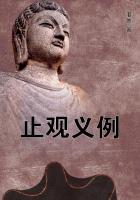"I don't understand the end," replied Foma. "And as to strength, that is true! Where am I to make use of my strength since there is no demand for it! I ought to fight with robbers, or turn a robber myself. In general I ought to do something big. And that should be done not with the head, but with the arms and the breast. While here we have to go to the Exchange and try to aim well to make a rouble. What do we need it for? And what is it, anyway? Has life been arranged in this form forever? What sort of life is it, if everyone is grieved and finds it too narrow for him? Life ought to be according to the taste of man. If it is narrow for me, I must move it asunder that I may have more room.
I must break it and reconstruct it. But nod? That's where the trouble lies! What ought to be done that life may be freer? That I do not understand, and that's all there is to it.""Yes!" drawled out Yozhov. "So that's where you've gone! That, dear, is a good thing! Ah, you ought to study a little! How are you about books? Do you read any?""No, I don't care for them. I haven't read any.""That's just why you don't care for them.""I am even afraid to read them. I know one--a certain girl--it's worse than drinking with her! And what sense is there in books? One man imagines something and prints it, and others read it. If it is interesting, it's all right. But learn from a book how to live!--that is something absurd. It was written by man, not by God, and what laws and examples can man establish for himself?""And how about the Gospels? Were they not written by men?""Those were apostles. Now there are none."
"Good, your refutation is sound! It is true, dear, there are no apostles. Only the Judases remained, and miserable ones at that."Foma felt very well, for he saw that Yozhov was attentively listening to his words and seemed to be weighing each and every word he uttered. Meeting such bearing toward him for the first time in his life, Foma unburdened himself boldly and freely before his friend, caring nothing for the choice of words, and feeling that he would be understood because Yozhov wanted to understand him.
"You are a curious fellow!" said Yozhov, about two days after their meeting. "And though you speak with difficulty, one feels that there is a great deal in you--great daring of heart! If you only knew a little about the order of life! Then you would speak loud enough, I think. Yes!""But you cannot wash yourself clean with words, nor can you then free yourself," remarked Foma, with a sigh. "You have said something about people who pretend that they know everything, and can do everything. I also know such people. My godfather, for instance. It would be a good thing to set out against them, to convict them; they're a pretty dangerous set!""I cannot imagine, Foma, how you will get along in life if you preserve within you that which you now have," said Yozhov, thoughtfully.
"It's very hard. I lack steadfastness. Of a sudden I could perhaps do something. I understand very well that life is difficult and narrow for every one of us. I know that my godfather sees that, too! But he profits by this narrowness. He feels well in it; he is sharp as a needle, and he'll make his way wherever he pleases. But I am a big, heavy man, that's why I am suffocating! That's why I live in fetters. I could free myself from everything with a single effort: just to move my body with all my strength, and then all the fetters will burst!""And what then?" asked Yozhov.
"Then?" Foma became pensive, and, after a moment's thought, waved his hand. "I don't know what will be then. I shall see!""We shall see!" assented Yozhov.
He was given to drink, this little man who was scalded by life.
His day began thus: in the morning at his tea he looked over the local newspapers and drew from the news notices material for his feuilleton, which he wrote right then and there on the corner of the table. Then he ran to the editorial office, where he made up "Provincial Pictures" out of clippings from country newspapers.
On Friday he had to write his Sunday feuilleton. For all they paid him a hundred and twenty-five roubles a month; he worked fast, and devoted all his leisure time to the "survey and study of charitable institutions." Together with Foma he strolled about the clubs, hotels and taverns till late at night, drawing material everywhere for his articles, which he called "brushes for the cleansing of the conscience of society." The censor he styled as superintendent of the diffusion of truth and righteousness in life," the newspaper he called "the go-between, engaged in introducing the reader to dangerous ideas," and his own work, "the sale of a soul in retail," and "an inclination to audacity against holy institutions."Foma could hardly make out when Yozhov jested and when he was in earnest. He spoke of everything enthusiastically and passionately, he condemned everything harshly, and Foma liked it.
But often, beginning to argue enthusiastically, he refuted and contradicted himself with equal enthusiasm or wound up his speech with some ridiculous turn. Then it appeared to Foma that that man loved nothing, that nothing was firmly rooted within him, that nothing guided him. Only when speaking of himself he talked in a rather peculiar voice, and the more impassioned he was in speaking of himself, the more merciless and enraged was he in reviling everything and everybody. And his relation toward Foma was dual; sometimes he gave him courage and spoke to him hotly, quivering in every limb.
"Go ahead! Refute and overthrow everything you can! Push forward with all your might. There is nothing more valuable than man, know this! Cry at the top of your voice: 'Freedom! Freedom!"But when Foma, warmed up by the glowing sparks of these words, began to dream of how he should start to refute and overthrow people who, for the sake of personal profit, do not want to broaden life, Yozhov would often cut him short:
"Drop it! You cannot do anything! People like you are not needed.














